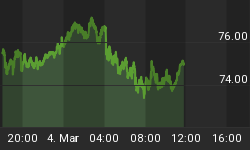'Food, glorious food' conjures up the image of Oliver Twist and his brother orphans wailing over a shortage of porridge in Dickensian England.
Last week, a food shortage became an American reality. Costco Warehouse, Wal-Mart and other food stores limited the purchase of certain food staples in bulk form. Purchases of rice in California and of oil and flour in Queens were restricted. Customers were angry, voicing strong concern and questioning whether the situation would worsen.
Should we be worried? While it may be premature to expect the worst, given the drift of economic events it is worth a moment to consider the possible implications.
Historically, food shortages even in developed countries, such as England, have sparked riots. In France and Russia, shortages of food led not only to riots but also to insurrection and, ultimately, to political revolution. Traditionally, food based insurrections arrive alongside other political ills, and it is a shortage of food that is often the final straw that breaks the back of social order.
If food scarcity and partial rationing comes on the crest of a rising tide of growing economic inequality and deterioration in America, social upheaval is a real possibility.
While Wall Street paid itself some $26 billion in bonuses last year, ordinary people were being squeezed financially. Some retirees even saw the value of their savings decline substantially.
For most Americans, their most important financial asset is their home. In recent years, the borrowing base it offered was an important source of income. Last year, the subprime housing debacle eroded the home values of millions of Americans, even those who had borrowed prudently. Many house values slipped below the level of their mortgage equity, threatening foreclosures and eliminated cash out opportunities. Middle-income households have been especially hard hit.
This decline in real estate values already has hit the tax base of local authorities, threatening a contraction of services which will disproportionately impact the poor. Furthermore, when the families that provide the bulk of our armed forces, see government spending in Iraq increase, while services decline at home, resentment can build.
Despite government statistics to the contrary, the American economy has been in contraction for several months. Weak earnings posted by retailers and airlines in recent weeks confirm the trend.
Although still relatively low, the rising level of unemployment promotes job insecurity and financial fear. In addition to the weakening employment picture, inflation is raging at levels far above the official figures. Weekly trips to the supermarket and the gas station are becoming horrific experiences to Americans of modest means. For these folks, high inflation is a tangible reality. This disconnect with the mild government figures is fueling distrust and resentment.
Washington's double talk is clearly evident with respect to the dollar, which continues to decline despite the "strong dollar" rhetoric. Many have concluded that the authorities are simply lying while they pursue a deliberate policy of dollar debasement. Many American realize that weakening dollar represents a stealth tax on every man woman and child, who holds U.S. dollars. Again, this is a cost that hits the poor disproportionately hard.
If food prices continue their rapid ascent, and if hording or rationing result, the social climate may deteriorate rapidly .It is hard to imagine two more potent causes of insurrection than economic hardship accompanied by a denial of access to food. In some countries food shortages already are causing riots. The situation is so grave that many major food producing countries such as Argentina, China and Russia are restricting food exports, driving prices even higher.
Raising the political temperature still more is the fact that the U.S. government is encouraging farmers to grow crops (corn, wheat and soybean) to burn as fuel, while refusing to even consider cuts in generous subsidies to wealthy farmers reaping windfall profits.
Rising corn prices have led to higher prices for wheat, beef, milk and even derivatives such as chocolate, made with milk. Furthermore healthy beef and milk producing cattle are being slaughtered to divert their wheat-based food to ethanol. Food prices have been a problem for several months due to a number of reasons including droughts. Now "food security" threatens to become political dynamite.
In an effort to avert food shortages in America, should the Federal Reserve Board lower or raise its interest rates? On the one hand, a lowering of interest rates, to avoid deepening recession, would weaken the U.S. dollar, driving the dollar price of foodstuffs still higher. On the other hand, raising interest rates would mean a deepening of recession and a generally reduced ability to buy food.
The decision is difficult and complex. At the very least, however, it should give all of us food for thought.
For investors, food rationing and scarcity pose both a moral and an ethical dilemma. Peter Schiff, discussed rising food prices on his radio show. http://www.europac.net/radioshow.asp
For a more in depth analysis of our financial problems and the inherent dangers they pose for the U.S. economy and U.S. dollar denominated investments, read Peter Schiff's book "Crash Proof: How to Profit from the Coming Economic Collapse." Click here to order a copy today.
More importantly, don't wait for reality to set in. Protect your wealth and preserve your purchasing power before it's too late. Discover the best way to buy gold at www.goldyoucanfold.com, download our free research report on the powerful case for investing in foreign equities available at www.researchreportone.com, and subscribe to our free, on-line investment newsletter at http://www.europac.net/newsletter/newsletter.asp.
















